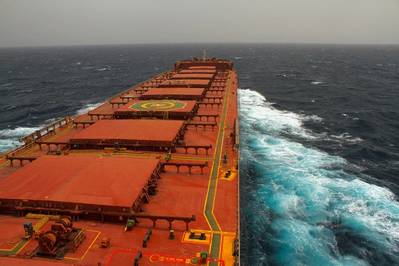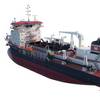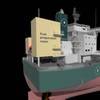Baltic Dry Index Slides Sharply as Capesizes Hit Two-year Trough
The Baltic Exchange's main sea freight index registered its worst fall in three months on Thursday, weighed down by lower demand for coal and iron ore cargoes as steel output fell in China.
The overall index, which factors in rates for capesize, panamax and supramax shipping vessels, fell 90 points, or about 7.4%, to 1,123 points, a fresh low since Dec. 9, 2020.
"Current uncertainties in the global economy, along with the much higher commodity prices, especially for coal, are not doing the market any favours," said Niels Rasmussen, chief shipping analyst at BIMCO.
"This would be a fairly strong additional indicator that the prospects for the global economy for the next month or two are not looking up at least," he added.
The capesize index fell 206 points, or about 30.3%, to 474 points, hitting a low since early June 2020.
Average daily earnings for capesizes, which typically transport 150,000-tonne cargoes such as iron ore and coal, fell $1,705 to $3,931.
Crude steel output from China, the world's top producer and consumer of the metal, dropped 6.4% to 81.4 million tonnes in July, World Steel Association data showed on Tuesday.
"It's going to take some moves, more than likely in China, to really spur demand to come and see some strong improvements for the rest of the year," Rasmussen added.
The panamax index continued its month-long losing streak, shedding 67 points, or 4.5%, at 1,424 points.
Average daily earnings for panamaxes, which usually carry coal or grain cargoes of about 60,000 to 70,000 tonnes, decreased $606 to $12,816.
The supramax index snapped its nine-session winning streak, falling 10 points to 1,763 points.
(Reuters - Reporting by Harshit Verma and Deep Vakil; Editing by Maju Samuel)











